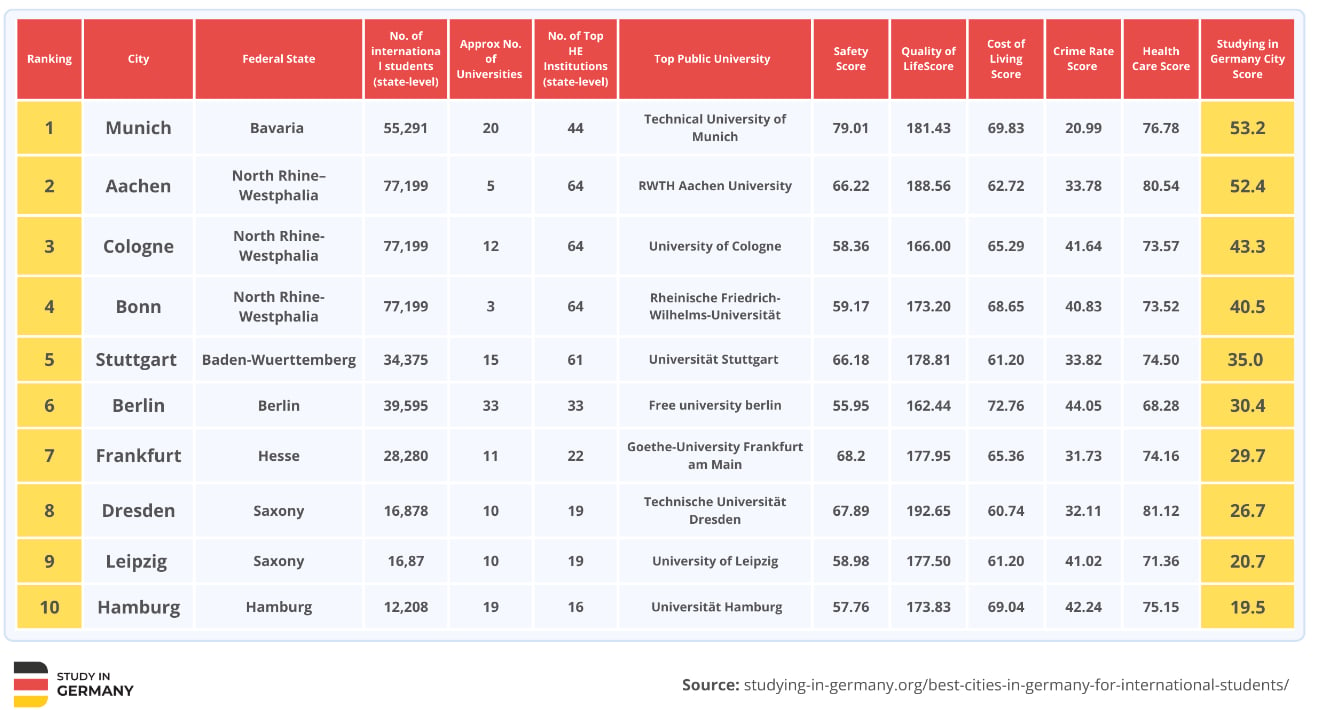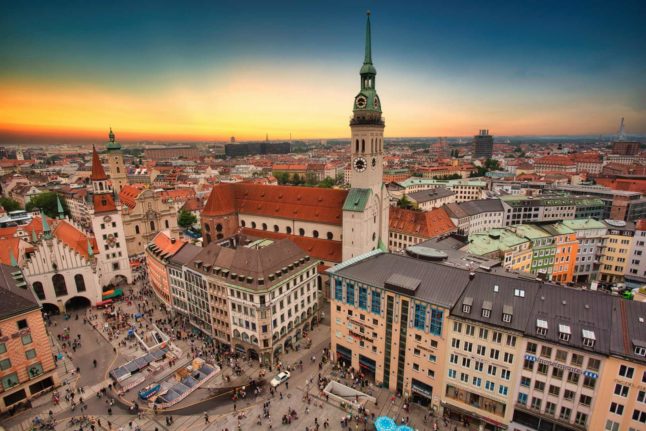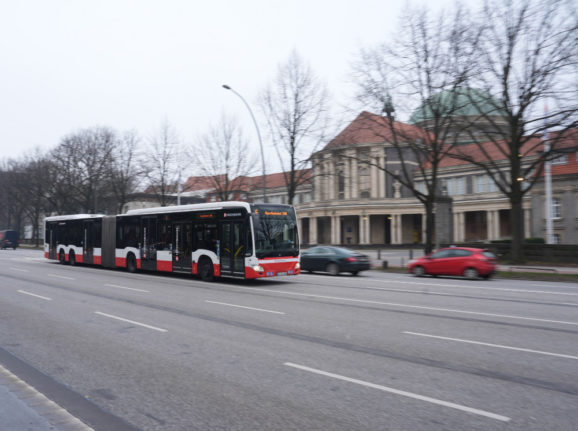Germany is one of the top destinations for international students, but those looking to move to the country may feel overwhelmed by the range of different cities, universities and courses on offer.
In its latest ranking of the top German cities for international students, Study-in-Germany.org looked at a range of factors that contribute to a well-rounded student life, from the size of the international student community to access to healthcare, safety, and cost of living in cities around the country.
The resulting list maps the ten best German cities for studying in 2024, helping you find the city where you can have the best experience possible.
1. Munich
Sometimes nicknamed “the village of a million people”, the Bavarian capital is one of the most beloved cities in the world for international students, combining big city culture with a picturesque small-town charm.
Munich is home to a large portion of the state’s 55,291 international students and also happens to boast two of the country’s top universities, with Technical University Munich and Ludwig Maximilian University regularly topping the rankings both at home and internationally.
As one of the most expensive cities in the country, you may have to stretch your budget a little to live here, but the vibrant cultural scene and unbeatable quality of life more than make up for the cost.
READ ALSO: ‘World’s largest village’: How foreigners in Germany feel about Munich
2. Aachen
Nestled along the border of Belgium and the Netherlands, Aachen is sometimes overlooked as a study destination, but as the second best city for international students in the country, it’s definitely worth considering.
With its UNESCO-listed cathedral and beautifully preserved Old Town, Aachen is ideal for anyone looking to study amidst historical grandeur without breaking the bank. It’s one of the most affordable student cities in Germany and comes second in the ranking in terms of quality of life, but its location also makes it the ideal base for exploring more of Europe and the bustling state of North Rhine-Westphalia.
Home to RWTH Aachen University and four other institutions offering 78 programs in English, international students hoping to study here will also be spoilt for choice.

3. Cologne
Situated along the famous Rhine river, the city of Cologne is known for its lively carnival celebrations, fun and laidback atmosphere and of course its jaw-dropping Gothic cathedral – a UNESCO World Heritage Site.
In terms of study options, the city hosts 12 universities accommodating over 80,000 students, including the prestigious University of Cologne, which is one of the oldest and largest institutions in the country.
But those are far from the only draws to studying in Cologne: students here also love the vibrant nightlife, affordable living costs and the access to breathtaking nature as well as other major cities like Düsseldorf and Frankfurt.
4. Bonn
Formerly the capital of West Germany and still home to a handful of government ministries, Bonn is a charming small city that still punches above its weight.
With plenty of boutique restaurants, museums, parks and scenic hiking trails, there’s a lot to keep international students entertained in their breaks from the library. And though the city is a little pricier than other university cities, it’s a worthy investment in a vibrant student experience.
There are three universities in Bonn, but high achievers will likely be most drawn to the top-ranked University of Bonn (Rheinische Friedrich-Wilhelms-Universität), which offers diverse programs for international students.
5. Stuttgart
Stuttgart is another top destination for international students, housing 15 universities, including the renowned University of Stuttgart, which is known for its excellence in science and engineering.
For students in technical subjects, there are also a wealth of employment opportunities after graduation: Stuttgart is known as the “cradle of the automobile”, thanks to the presence of car manufacturers Porsche and Mercedes-Benz in the city, not to mention the impressive Mercedes-Benz museum.

If you enjoy the great outdoors, you’ll love the easy access to the mountains and Black Forest that you get as a resident in Stuttgart, not to mention the sprawling parks and rolling hills within the city itself.
Unfortunately, rents are high in Stuttgart, and non-EU citizens pursuing specific degree programs face tuition fees of €1,500 per semester, making it less affordable than elsewhere in the country.
6. Berlin
With its world-famous nightlife, bold arts scene, and ever-widening career opportunities, Berlin is a magnet for young people looking to make their home in an up-and-coming European capital.
Whether you’re cycling through the leafy Tiergarten or sipping a cappuccino in trendy Kreuzberg, you’ll never be spoilt for things to do in Berlin. It also happens to be a prominent academic hub, home to the prestigious Free University, Humboldt University and Technical University, along with 30 other institutions. In that sense, it’s no wonder that more than 30,000 international students have made Berlin their home.
The once-divided city has changed a lot over the past ten years, but still boasts the liberal and laidback atmosphere that makes it stand out among other major German cities. Unfortunately, prices for rents have shot up recently, but the job market is buoyant, making it easy for international students to support their studies with a part-time job.
READ ALSO: How do I get a student visa for Germany and what does it let me do?
7. Frankfurt
Home to 11 universities, including the renowned Goethe University, Frankfurt is a haven for international students – and is also one of the most international cities in Germany. Drawing from a pool of over 28,000 international students in the broader Hesse region, Frankfurt shines for its vibrant academic community and robust research opportunities.
Ranked second in terms of safety, Frankfurt offers a high quality of life thanks to excellent healthcare, education, public services, and an overall great standard of living. For bookworms, there’s even more to love—Frankfurt proudly hosts the world’s largest book fair, attracting literary enthusiasts and professionals from across the globe.
Though Frankfurt may have a reputation for being pricey, it comes somewhere in the middle in comparison to other student cities. What’s more, the city’s thriving banking sector means there’s no shortage of high-paying shops to consider after graduation.
READ ALSO: ‘A megacity on a smaller scale’: An insiders’ guide to Frankfurt
8. Dresden
The capital of Saxony is not the first location international students may think of, but those who do decide to study in this great city are unlikely to regret it.
Nicknamed “the Florence of the Elbe” for its grand Renaissance architecture, the centre of Dresden is full of breathtaking sights, from the lovingly renovated Frauenkirche to the neoclassical Semperoper.

Within easy distance by train of the popular Saxon Switzerland hiking region, Dresden also topped the rankings as the city offering the best quality life, and also providing unbeatable affordability.
The Dresden Technical University is the city’s most well-respected institution, and the city is home to around 16,000 international students as a whole.
9. Leipzig
Leipzig is another German city that attracts students from around the world, with prestigious institutions like the Leipzig University and the Leipzig Graduate School of Management (HHL) located here. Notably for a smaller city, you’ll also find big name companies like Amazon, DHL, BMW, and Porsche in Leipzig, offering a wealth of employment options for after graduation.
Sometimes nicknamed “Hypezig” by those in the know, Leipzig has a burgeoning creative scene and is increasingly a place that artists, musicians and writers are making their home. This also has something to do with the affordable of the city, with Leipzig ranking in the top three most affordable student cities in Germany.
10. Hamburg
With over 12,000 international students, the city-state of Hamburg is a thriving academic centre boasting around 19 universities and a more than 300 degree programs. Out of all of these, the University of Hamburg is the largest and most popular institution.
With the northern coastline just a stone’s throw away, you’ll find plenty to love about Hamburg’s rich maritime history and opulent harbourside, not to mention the buzzing nightlife on the famous Reeperbahn.
READ ALSO: How to stay in Germany after graduating from a German university
Unfortunately, the price of rents and the slightly grey weather does let Hamburg down, but the scenic inner-city and unparalleled cultural scene are more than enough compensation for many.




 Please whitelist us to continue reading.
Please whitelist us to continue reading.
Prospective students should consider where they think their educational trajectory will take them.
A good example is my alma mater, Heidelberg. It doesn’t appear in the top ten, yet is #1 in medicine. Just a word to the wise.